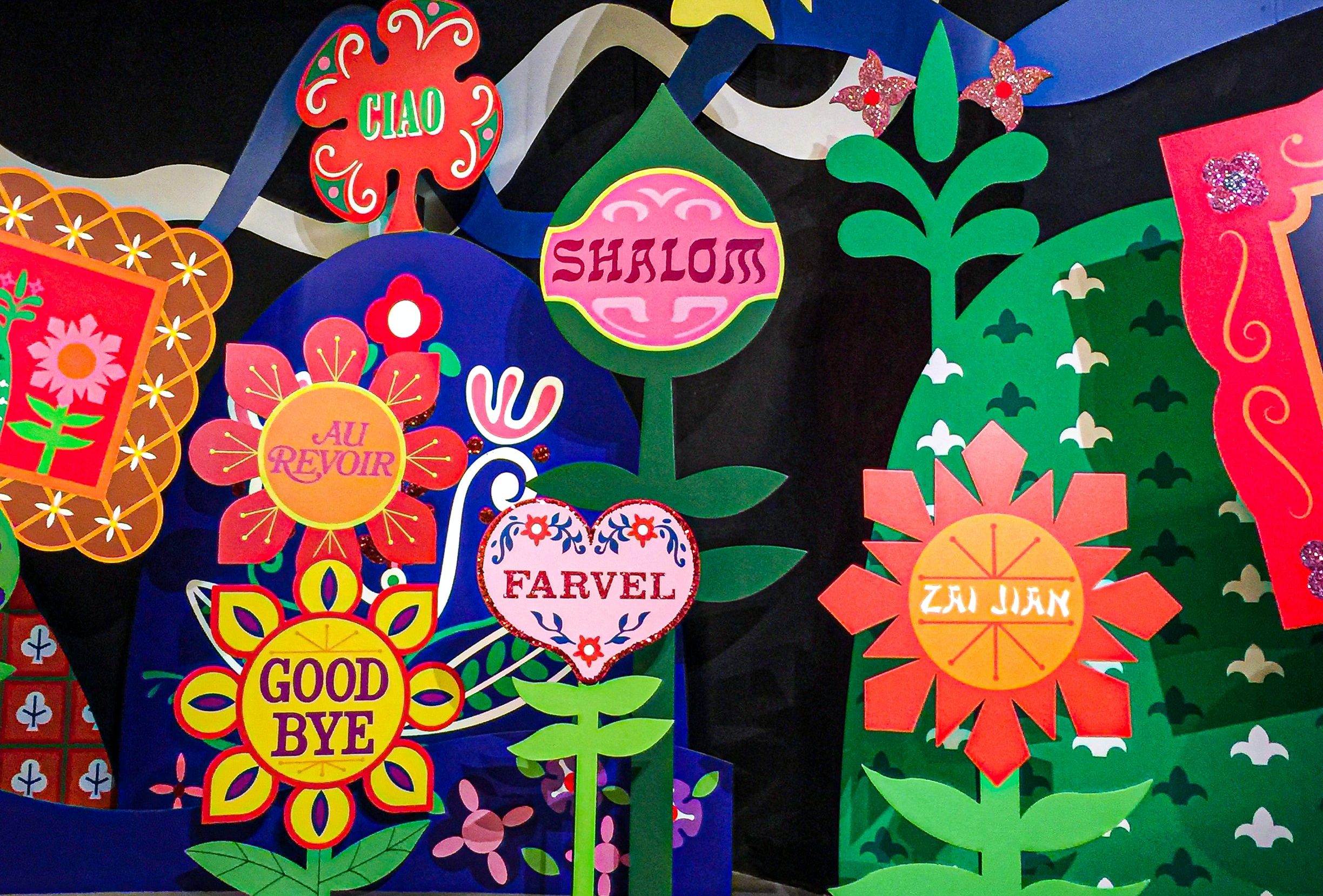Have you ever had feelings that you just couldn’t put into words? Sure, there are ways to describe them, but most explanations are too ambiguous and fail to capture the true essence of experience. Often, you’d have to use a full clunky phrase to describe it, but even then, you’re not satisfied. You are not alone, because human emotions are limitless, and extend far beyond the basics of anger, sadness, happiness, excitement, surprise and disgust. According to psychology professor and neuroscientist, Dr. Lisa Feldman Barrett, being able to identify and label our emotions can have far-reaching consequences, especially in regard to how well we cope with life.
Words in any language are usually a reflection of the local culture; they reflect emotions that are valued or experienced within that culture on a regular basis. For example, the existence of such words in Japanese as “komorebi” (sunlight filtering through trees), “yugen” (a profound, mysterious sense of the beauty of the universe…and the sad beauty of human suffering), and “wabi-sabi” (an appreciation of the beauty of imperfection, impermanence and simplicity as the natural state of things) provides significant insight into the culture’s aesthetics and values, including its appreciation of nature and finding beauty in simplicity.
There are many words in other languages that perfectly express the various emotions we may feel at one point or another. While some of these emotions already have words in English to describe them, native speakers would argue that the actual meanings of these words go much deeper than what they translate to in English.
Gigil (Tagalog) / Gemas (Malay)
You know how, when you see your cat or puppy, you have this irresistible urge to pinch or squish them because they are just too cute and adorable? This feeling is referred to as “Gigil.” There is no specific word for it in English, but it is similar to what is known as “cute aggression,” which was first described by psychologists in 2013. Cute aggression is defined as the desire to squeeze, bite or pinch something cute, such as a young animal or a human baby, without intending to harm them.
Saudade (Portuguese)
Picture this: you’re with your friends on a beach late at night, the wind is blowing, there’s music playing, there’s lots of laughter and hap, and slowly you start to feel a sense of sadness or nostalgia for this moment even though it hasn’t ended yet. What you are feeling may be described as “Saudade.” Portuguese and Spanish scholar, Aubrey Bell describes it as a vague and constant desire for something that does not and probably cannot exist, for something other than the present. It represents a turn toward the past or toward the future; not an active discontent or poignant sadness but an indolent dreamy wistfulness.
“Saudade” is a multifaceted word that is quite difficult to translate into English. It is an emotional state characterized by a melancholic or profoundly nostalgic longing for something or someone one loves, even if the object of desire is not necessarily real or within reach. Saudade can also be described as feeling sad about past experiences yet happy that these memories exist in the first place. In this regard, it is similar to “Natsukashii” (Japanese) — a nostalgic longing for the past, with happiness for the pleasant memory but sadness that it’s no longer available.
Muditā (Sanskrit, Pali)
You have most likely heard of (or even experienced) “schadenfreude” (German), which is when one derives pleasure, joy, or self-satisfaction from learning about or witnessing the troubles, failures, or humiliations of others. “Mudita” is the inverse of this feeling, and it is a term used in the ancient Indian languages Pali and Sanskrit to describe the vicarious or unselfish joy felt when others succeed. It is the pleasure that comes from delighting in other people’s happiness and good fortune. In the words of psychology professor, Catherine Chambliss, “We can access a greater amount of happiness when we are willing to partake in others’ joy.”
Sehnsucht (German)
This is an inexplicable or wistful yearning for something that cannot be explained. You know when you have a deep desire for something but don’t know what it is? When you want something but don’t have anything specific in mind? “Sehnsucht” is the word you’re looking for.
Greng jai (Thai)
“Greng jai” is the feeling of not wanting to cause someone trouble or to ask them to do something for you because you believe it would be inconvenient for them. It’s a type of respect and care that is a bit hard to explain; the closest English equivalent is “not wanting to impose,” but that still doesn’t do the word justice.
Kaapshljmurslis (Lithuanian)
Public transportation is an absolute lifesaver. However, the feeling of “Kaapshljmurslis,” or being crammed into a public transportation vehicle, especially during rush hour, can no doubt be very uncomfortable. Lithuania offers this single word to describe a very familiar experience for residents of big cities around the world.
Fernweh (German)
“Fernweh” is the feeling of homesickness for a place you’ve never visited. It refers to a deep ache to travel to a distant place. It was described by author Daniel Garrison Brinton as “goading restlessness,” and Russian-American novelist Vladimir Nobokov as “nostalgia in reverse, the longing for yet another strange land.” The word is derived from the German words “fern,” which means distance, and “wehe,” which means ache, misery or sickness. It is similar to “Elvágyódás” (Hungarian), a melancholy longing for another place or time far removed from your reality (though this does not always imply travel), and “Kaukokaipuu” (Finnish), an intense longing for a place you have never visited.
New Words (English)
Finally, you might be surprised to learn that there are words (albeit new ones) in the English language that describe many of those strangely powerful emotions that are difficult to name. That feeling of emptiness after a long, arduous process is finally completed, leaving you relieved that it’s over but missing the stress that helped organize and direct your life? The overwhelming sense of existential dread that comes when you realize how little of the world you’ll actually get to experience? The feeling of sitting on a train and suddenly realizing that everyone around you has a story? There are now neologisms that describe these feelings, thanks to author John Koenig. “The Dictionary of Obscure Sorrows,” a collection of words invented by Koenig, gives names to emotions we experience but don’t yet have a name for. The author’s goal is to capture the aches, demons, vibes, joys and urges that roam the wilderness of the psychological interior. Perhaps some of these words might better help you understand and enjoy the human experience.

















